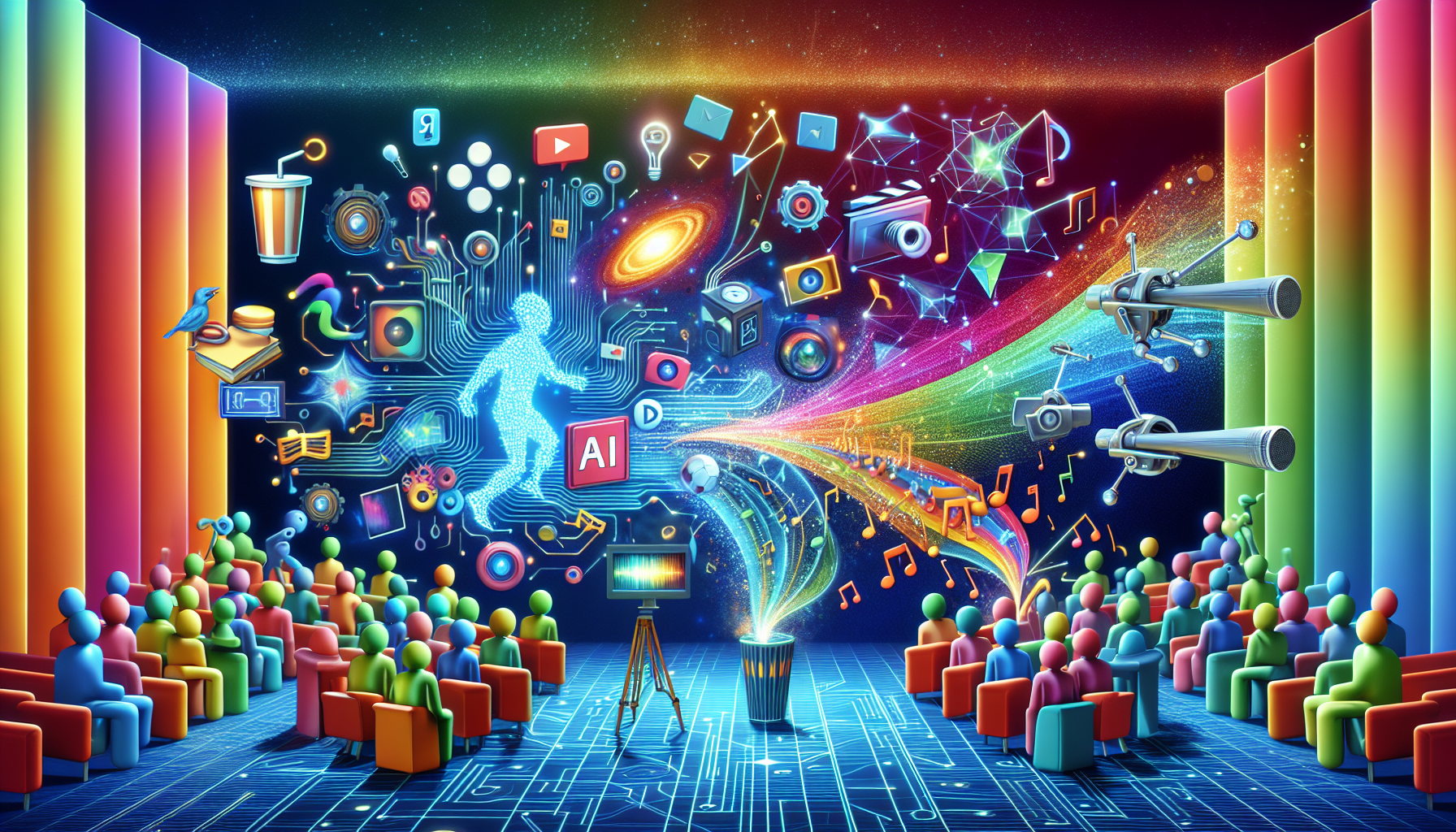
The AI Odyssey in Entertainment
If a digital sage had told you a decade ago that AI would feature in your favorite film’s credits, nestled comfortably between Best Boy and Gaffer, you might have chuckled. Yet here we are, living in an era where AI and the entertainment industry are becoming quite the dynamic duo—albeit, one that’s still sorting out its dance moves.
Major alliances between AI companies and Tinseltown titans have been rolling in as slowly as the credits at the end of a three-hour blockbuster. Even though the spotlight is on tech partnerships, only a few collaborations, like the one between Runway and Lionsgate, have taken their place center stage. Runway, the AI startup valiant in its vision, is teaming up to alleviate the tedious tale of behind-the-scenes tasks like storyboarding, reminding us that sometimes even the unsung heroes deserve a little AI magic.
Cautious Steps into the Digital Twilight
Oh, the drama! Studios as colossal as Netflix, Disney, and Warner Bros. have yet to throw open the gates to AI with abandon. Instead, they’re treading as gingerly as a cautious cat confronting a Roomba. Who could blame them? The regulations, intellectual property conundrums, and the daunting prospect of audience backlash hang over them like a pesky sequel rumor.
Adding to the chaos are those legal labyrinths, where actors need to ink deals that demand they be paid for digital stand-ins. As for film and TV libraries? Valuing them in the context of AI innovation is akin to capturing lightning in a bottle. With AI ogling obscure content like it’s a treasure trove, valuable data goes beyond just the usual entertainers’ hall of fame.
Cinema’s AI Renaissance
AI is not just a one-trick pony in entertainment; it’s the Swiss army knife of cinematic creativity. It turns up at every stage, from development all the way to post-production, its version of a creative Sundance festival. While ChatGPT conceives plot twists and character arcs, text-to-video generators polish up those effects, sending digital sparks flying through the editing suite.
Regulatory standards now tiptoe in to keep this AI ball rolling fairly, with new agreements ensuring digital replicas and generative AI performers are treated with all the dignity of divas demanding only purple candy in their dressing room. And let’s not forget the golden goose—the economic impact. Estimates hint giddily at the AI dreamland adding a staggering trillions-of-dollars-worth-of-magic to the global economy.
Musical Melodies Meet AI
Despite the cinematic spotlight, one must not forget the silent undertones of music, where AI’s presence is both a blessing and a concern. Artists croon a plea for fairness, with the American Music Fairness Act echoing their concerns over AI’s potential to reduce the rights of human creatives to mere background noise. Legends like Jon Bon Jovi, Billie Eilish, and Stevie Wonder have lent their voices to this digital symphony, ensuring that AI’s crescendo in the music industry is melodious rather than menacing.
As AI weaves itself into the cultural tapestry of music and entertainment, it’s both a muse and a critic. The road ahead is like any good showbiz journey: laid with tawdry temptation, glittering opportunities, and the promise of a great story—just perhaps one finalized by an AI editor with an eye for drama and a heart for embracing the newest member of the creative team.






